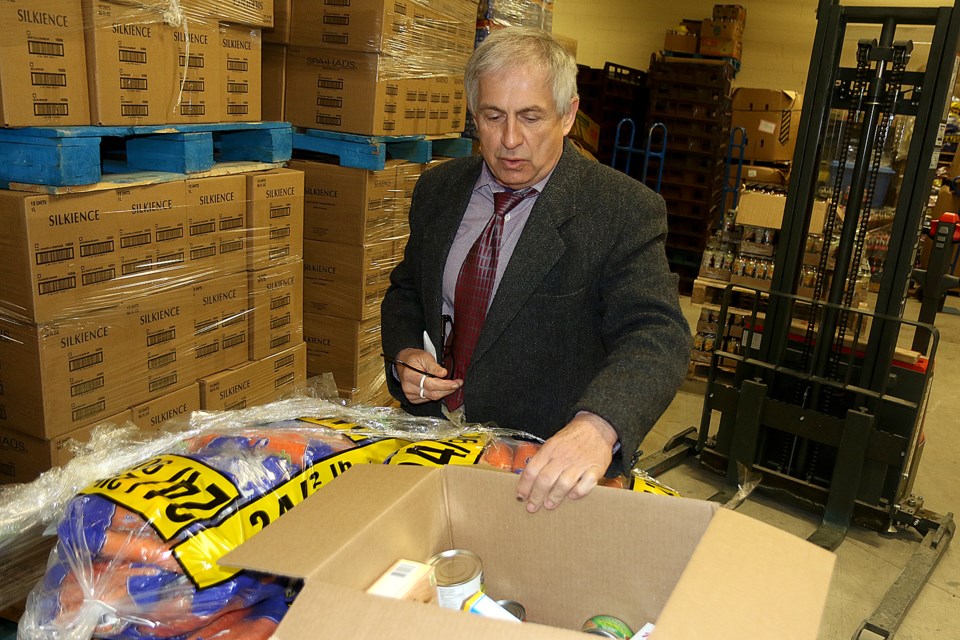The province of Ontario has received a D- when it comes to tackling poverty.
That inaugural poverty report from Food Banks Canada gave the province that grade when they released their report on Tuesday.
They also reported that more than 42 per cent of the population feels financially worse off as compared to last year.
The report also stated that 18 per cent of respondents are currently coping with food insecurity, and almost one-third also said they have an inadequate standard of living.
“I wasn't surprised by [that rating] because we really haven't seen a lot of movement in that area to support [those who are feeling insecure about food],” said Volker Kromm, the executive director of the Regional Food Distribution Association. “We're finding that there are more communities and neighbourhoods that are starting to feel the pinch. It's not just the unemployed or the homeless, it's also the people who are [having to] hold down one or two jobs just to make ends meet.”
Nova Scotia got the worst grade in Canada with an F while Quebec scored the highest with a B-.
Kromm continues to talk with officials at all three levels of government to help not only their clientele but also the business itself.
He suggested that the province could look at bringing back a basic income, which entails a payment that ensures a minimum income level regardless of employment status, or to look at the rates around the Ontario Disability Support Program.
“ODSP [could] make it easier for individuals [to] try [and] get back into the workforce. There are also [programs available for individuals and families] that are under the $50,000 range, or wherever the poverty line lies nowadays,” Kromm said. “It [was] great when we were going down the path of the basic income. There was such optimism, but that was cancelled. So, a basic living wage is something that I think we all aspire to.”
Hamilton and Thunder Bay were two communities chosen by the previous Liberal government for a three-year basic income pilot project.
The project was wound down in 2018 by the Progressive Conservatives in order to focus on introducing their own plan.
Bonnie Krysowaty, a social researcher and planner for the Lakehead Social Planning Council, continues to advocate for a living wage.
“Right now, the living wage is $19.70 an hour in Northern Ontario, [which includes] Thunder Bay. We know that if people make at least that much money, they are able to meet most of the social [financial obligations]; they can look after their rent, health costs, afford education, transportation. [There would also be the luxury to afford] healthy food and be able to go to the grocery store and get the groceries that they need for themselves or their families and themselves,” Krysowaty said.
Krysowaty is also the coordinator of the Thunder Bay Poverty Reduction Strategy, and noted that she would like to see the incomes for those on Ontario Works and ODSP increased.
Kromm mentioned that when he did a four-budget forecast for the operating costs of the RFDA, he saw it jump from $780,000 to roughly $1.4 million, an increase of nearly 80 per cent.
“[Paying employees is crucial] but that's a cost that isn't being matched with increased funding or support from various places,” Kromm said. “Fuel [for the trucks], I'm going to have to pay our insurance bills, and that [cost] has gone skyrocketed. I also have to pay $1200 [for license plate stickers] because we have big trucks, and so when you add it all up, it's a really expensive proposition.”
Kromm’s ultimate fear is closing the doors of the RFDA, but maintains there will be plenty of warning if that move was to ever be enacted.
“We can't sustain a deficit financial management style. We are optimistic that we can form new partnerships and alliances, and I would hope that the government [can] be part of that. Generally, the government has not [because] we are not a government supported organization. Therefore, they have [helped us] with capital infrastructure things, but that doesn't feed people.”
